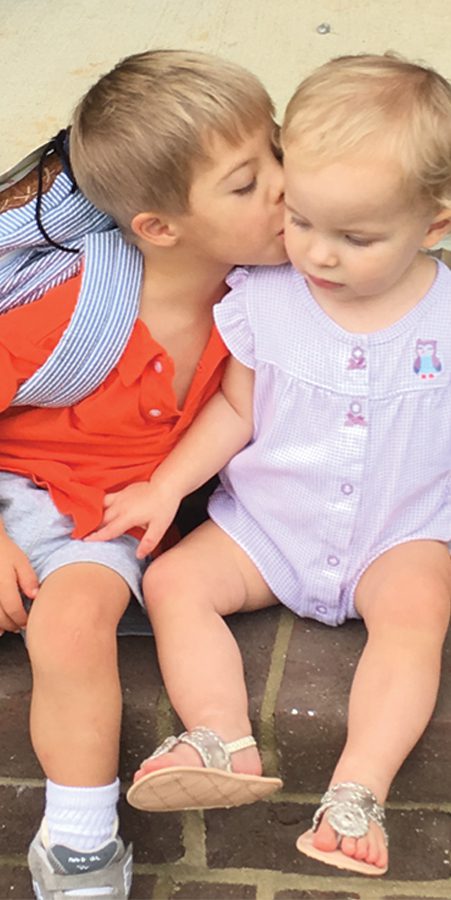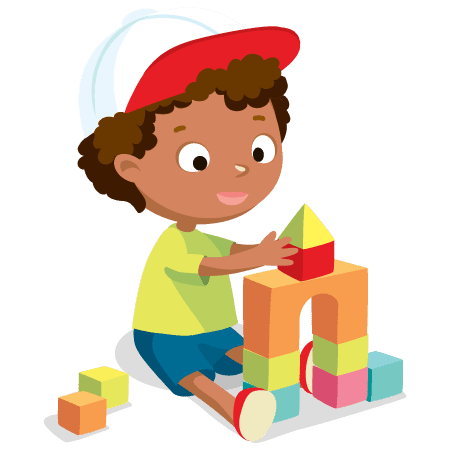- Board of Directors
- Buddy Walk
- Calendar
- Cart
- Checkout
- Consent to attend IEP
- Contact Us
- COVID-19
- Disaster Preparedness for Families with Special Needs
- Donate Now
- Download TEFRA Application
- Education
- Families
- Family Connection of South Carolina
- Find a Provider
- Get Involved, How to Help
- Get involved, Volunteer Today
- Healthcare
- Hopes & Dreams
- IDEA and McKinney-Vento Laws: Rights and Resources for SC Families
- Login
- Look Book order
- Look! Photography Exhibit
- 25000
- 25001
- 25002
- 25003
- 25004
- 25005
- 25006
- 25007
- 25008
- 25009
- 25010
- 25011
- 25012
- 25013
- 25014
- 25015
- 25016
- 25017
- 25018
- 25019
- 25020
- 25021
- 25022
- 25023
- 25024
- 25025
- 25026
- 25027
- 25028
- 25029
- 25030
- 25031
- 25032
- 25033
- 25034
- 25035
- 25036
- 25037
- 25038
- 25039
- 25040
- 25041
- 25042
- 25043
- 25044
- 25045
- 25046
- 25047
- 25048
- 25049
- 25050
- 25051
- 25052
- 25053
- 25055
- 25056
- 25057
- 25058
- 25059
- 25060
- 25061
- Adam
- Adaya
- Adeline C
- Ahmir S
- Aiden
- Aiden Elijah T
- Alexander
- Alexia
- Alexis S
- Amanda D
- Amani G
- Amaya Y
- Amden Alecole H
- Amelia H
- Ana Sofia
- Ana Sofia
- Ana Sofia B
- Andrew M
- Andrew P
- Angel C
- Angela Isabella
- Anthony Y
- Ariana
- Ariana
- Ariana
- Art Walk
- Arthur “Row” G
- Ashanti
- Asher B
- Ashley Altagracia R
- Ashley R
- Ashley R
- Austin
- Austin A
- Ava W
- Avery
- Avery B
- Avery B
- Avik
- Avik
- Axel
- Axel
- Baylee
- Benjamin
- Benjamin H
- Beverly C
- Blake and Evan B
- Bo
- Braden
- Braden
- Braden G
- Bradley L
- Brandon M
- Braydon and Paisley M
- Brett and Jacob
- Brian G
- Brian G
- Bryann
- buy art
- Caden D
- Cairo
- Cairo
- Caleb R
- Camari
- Camari B
- Cameron
- Cameron M
- Carolyn W
- Carson E
- Catherine
- Charles C
- Charlotte
- Chesnee H
- Cierra R
- Claire F
- Claire F
- Clara
- Colton S
- Cooper P
- Coraline J
- Corban
- Corbin B
- Cortland
- Cortland
- Cortland L
- Cortland L
- Court H
- Dade B
- Daisy
- Daisy N
- Daisy N
- Dakota
- Dakota M
- Dale “Tripp” H
- Daniel B
- Daniel S
- Daniela G
- David E
- David E
- Daxton
- Deklan
- Delaney
- Delaney
- Dhylan L
- Diana
- Diego G
- Drew
- Drew
- Duncan and Tanner
- Dylan
- Dylan and Jackson
- Dylan and Jackson M
- Dylan and Jonathan G
- Dylan M
- Eli
- Eli
- Eli J
- Eli S
- Elijah F
- Elijah F
- Elijah H
- Elijah L
- Elijah L
- Eliza
- Eliza
- Eliza
- Ella B
- Ella B
- Ellington
- Ellington
- Elsie R
- Emerson
- Emily L
- Emily S
- Emma
- Emma P
- Eriyanna M
- Ethan B
- Ethic B
- Eugene J
- Evelyn M
- Faith
- Faith R
- Gael Armando B
- Genesis H
- Giovanna F
- Grace H
- Graham L
- Grayson T
- Greyson W
- Haidyn J
- Haidyn J
- Hall T
- Halle
- Hannah Grace
- Hannah N
- Harrison W
- Hayes R
- Henry M
- Ian F
- Invite
- Isabella Cristina
- Isaiah B
- Isaiah B
- J.T. R
- J’vien M
- Jack
- Jack M
- Jack S
- Jackson
- Jackson and Parker T
- Jackson K
- Jackson K
- Jackson M
- Jacob W
- Jagger J
- Jailynn L
- Jakyrie H
- James C
- James R
- Jamie V
- Jasmine
- Javier
- Javier F
- Javier F
- Javier F
- Jaxon M
- Jaylen
- Jaylen
- Jaylen E
- Jeremy S
- Jerry S
- Jesus
- Jocelyn F
- Joe
- Jonathan A
- Jonathan, Dylan, and Glendy G
- Jordan M
- Joshua S
- Josue C
- Judah
- Judah
- Jude G
- Juliana D
- Juliana D
- Juliezer
- Juliezer
- Julissa R
- Ka’Niya
- Ka’Niya B
- Ka’Niya B
- Ka’Niya B
- Kaden M
- Kaitlyn L
- Kate C
- Kate M
- Katie H
- Katie H
- Kayln R
- Kayln R
- Keagan C
- Kelly
- Kelly
- Kieran S
- Kiersten B
- Kiersten B
- Laila W
- Levi R
- Lia
- Liam S
- Lila and Grayson S
- Lila B
- Lizzy
- Lizzy
- Logan B
- Logan M
- Look Participant Application
- Look Photographer Application
- look-2001
- look-2003
- look-2008
- look-2012
- look-2013
- look-2014
- look-2108
- look-22000
- look-24000
- LOOK! 2021
- LOOK! 2022
- LOOK! 2023
- LOOK! 2024
- Luke R
- Lydia Grace J
- Maddie
- Madelyn
- Malachi
- Malachi J
- Mallory
- Mallory
- Martin Family
- Mason
- Matthew
- McKenna M
- Meredith
- Mia S
- Mia S
- Micah C
- Michelle
- Michelle L
- Mila
- Milla
- Milla M
- Millie and Jace
- Miranda
- Myles
- Nasir W
- Nasir W
- Nicholas
- Nicholas H
- Noah J
- Novah M
- Olive D
- Oliver
- Oliver B
- Oliver B
- Pace
- Pace
- Paisley
- Paisley
- Paisley P
- Parker
- Parker
- Parker M
- Parker M
- Parker M
- Patience C
- Patriss
- Philip Rouse L
- Photo Release
- Qu’Mari
- Qu’Mari
- Qu’Mari D
- Raegan
- Raegan
- Raegan H
- Renatta and Xareny D
- Rosemary M
- Rosemary M
- Sam
- Sarah
- Sarah O
- Savannah
- Shani W
- Shawn J
- Shelby
- Shelby
- Skylah W
- Skylar H
- Sophia
- Stephanie V
- Stephen M
- Sullivan S
- Support LOOK! 2021
- Susan Faith E
- Susan Faith E
- Susana G
- T.J. M
- Terrence
- Theo H
- Tiffany
- Travis W
- Tripp H
- Warren “Ayers” H
- William Ethan B
- William K
- William S
- Zander C
- Zeron G
- Zeron G
- Zoe
- Zoe
- Zoey W
- Zoey W
- Zoey W
- Make a Donation
- Media Information
- Midlands Gives
- Midlands Gives
- My account
- News
- News
- Newsletter Sign-up
- Order Materials
- Orders QR
- Our Work
- Para Español
- Parent to Parent Support
- Profile
- Programs and Services
- Provider Form
- Referido
- Referral
- Resources
- Social Media
- Sponsorship Opportunities
- Staff Referral
- Summer Camps
- Support Our Work
- test
- Training
- Volunteer Leadership
- Woo Products
- Year End Giving
- Your Child’s Journey Begins
- Your Referral has been Submitted

Early Learners
Birth to Age 3
The early intervention program for infants and toddlers with disabilities (also known as Part C) is a federal program that provides services and supports to children birth, up to age 3 years old, who are at risk for developmental delays or disabilities. Services can include speech–language therapy, occupational therapy, physical therapy, assistive technology, and more.
BabyNet is South Carolina’s early intervention program and focuses on meeting the needs of both your child and family. The Part C program provides services in your child’s natural environment and include disability screening, making referrals and providing therapy services for children and their families up to their third birthday.
Eligibility – To be eligible for Part C services, a child must have a developmental delay or have been diagnosed with a condition that has a high probability of resulting in developmental delay.
Developmental Delay – In South Carolina, a child is considered to have a developmental delay if they are behind other children of the same age in one or more of the five areas of development: cognitive, communication, physical, social-emotional, and adaptive.
Established Risk Condition – An established risk condition is a condition that has a high probability of resulting in developmental delay. Examples include genetic disorders, neurological disorders, severe premature, vision impairment, hearing loss, and autism.
If your child is found eligible for BabyNet services, the following must be provided at no cost to your family:
• Identification and screening
• Service coordination
• Developmental assessments and evaluations
• The development of the IFSP
• Activities related to making sure you know your rights are protected
Anyone can refer a child to BabyNet services.
Learn more about South Carolina’s Early Intervention Program, BabyNet, at SCDHHS.

If you have concerns about your child’s development, or if results of a developmental screening indicates a developmental concern, your child can be referred to the state’s early intervention (EI) program, BabyNet, at SCDHHS.
IFSP and Services
An Early Interventionist will work with you to help develop a plan or Individualized Family Service Plan (IFSP).
If your child qualifies for services, you will choose an early intervention provider. The IFSP team, with you as a member, will decide what outcomes you will work on with your infant or toddler.
PART C Regulations
If your child is already receiving early intervention (Part C), a transition meeting is a required meeting that must take place no later than 90 days before your child’s 3rd birthday. As early as age 2, your service coordinator and IFSP team will start to discuss the transition process with you.





